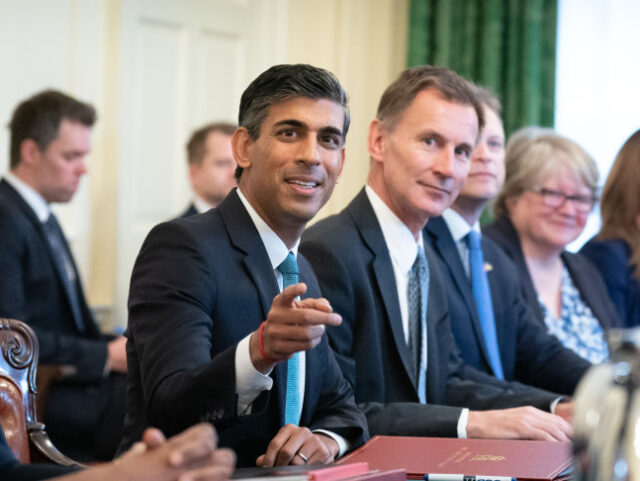The UK government is planning to time badly-needed-now tax cuts and wage rises to give the maximum feeling of uplift at the next general election, which it is claimed will take place next Autumn.
While the government has until January 2025 until a general election must be called, politicians are generally wary of winter votes and Conservative party insiders speaking to establishment-adjacent newspaper The Times say rumours of an early Spring election are not correct and a Fall-Autumn election in 2024 is more in chime with the ruling Conservative Party’s thinking.
This, it is claimed, is timed to make the most of the good weather — which, it is thought, makes it easier to motivate campaign volunteers — and the moment where economic recovery will feel most real. According to the report, the Conservatives are to hold back income tax cuts and a rise in the national minimum wage to coincide with a predicted fall in inflation next year, keeping more of people’s hard-earned income for longer — perhaps as long as a year — for political gain.
An unnamed government source cited in the report explaining the cynical ploy spoke of holding the election in a “sweet spot”, remarking: “It’s all about people feeling that they have more money in their pocket by the time we get to the next election.”
The plot is not one without foundation, with Conservative election victories in the United Kingdom over the past century generally living or dying on whether people feel better off or not.
Campaigning on having steered the economy through a period of economic instability — if they manage to succeed in that ambition — will be an important campaigning point given the party has little else to boast in terms of achievements. The promise of Brexit has so far been squandered by a government which seems to have little interest in grasping the opportunities it made possible, and given the party has long portrayed itself as one in favour of law and order, endless police and crime statistics scandals have rocked confidence.
One area which the British public has consistently voted in favour of, immigration, also leaves the distinct impression of a government dangerously out of control. As reported:
Migration is also firmly in the public eye because electors may reasonably feel like they had voted for border control at several successive elections, only to find the border-control promising parties in power taking no effective action for many years. Parties and causes speaking the language of border control came first in national elections in 2009, 2010, 2014, 2015, 2016, 2017, and twice in 2019, yet immigration is now higher than ever.
Whether this is a mixture of dishonesty and incompetence, or simply dishonesty, will no doubt become clear in time. But that outright dishonesty has been in play to some extent is beyond doubt: the Conservatives stood for elections for many years promising real, measurable reduction in overall migration numbers but one of the most powerful men in the Cameron era later admitted they had no intention whatsoever to keep those promises in the first place.
Indeed, the United Kingdom is now in a period of historically high immigration, with so many arrivals coming the government is no longer capable of processing them. Instead, the Conservatives are now offering an “Amnesty in all but name” in an effort to clear the backlog of applications.

COMMENTS
Please let us know if you're having issues with commenting.